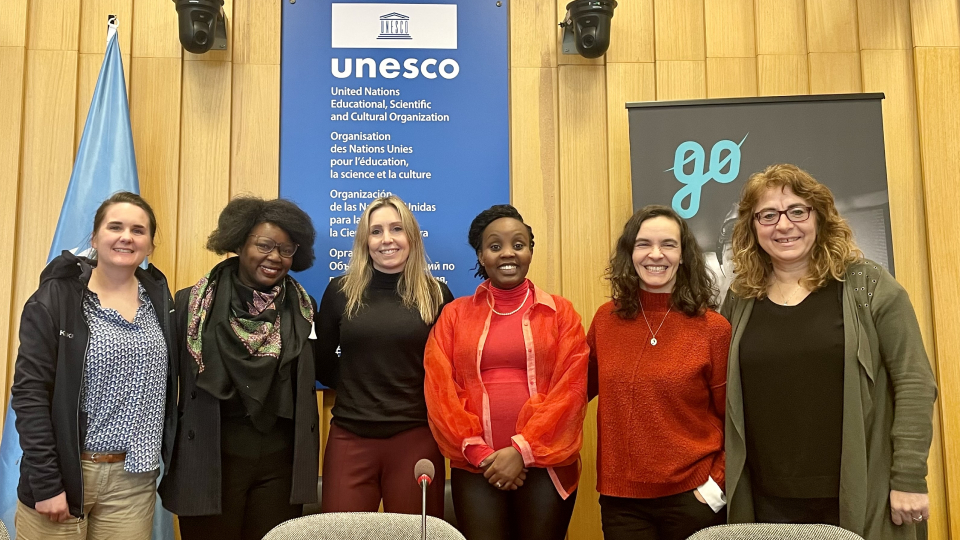The meeting engaged over fifteen key organisations, ranging from international inter-governmental agencies, such as the World Health Organization (WHO), sports organisations, such as the International Olympic Committee (IOC), to charitable organisations, such as Women Sport International (WSI), all united by a common goal set out by programme director Lombe Mwamba and the observatory team “to advance accountability for progress on gender equality in physical education, physical activity and sports.”
Building on progress made by Loughborough colleagues who attended the June UNESCO MINEPS VII conference held in Baku, Azerbaijan and activities of the University’s UNESCO Chair in Sport, Physical Activity and Education for Development, Dr Gemma Witcomb, Dr Silvia Costa, Dr Susana Monserrat-Revillo and Dr Verity Postlethwaite contributed to the two-day event.
The event allowed representatives from Loughborough to contribute the transdisciplinary research strengths of School of Sport Exercise and Health Sciences into the varying conversations. Many of the stakeholders in the room were interested in Loughborough’s wider community and listened to the University’s commitment to equity for women and girls.
The contributions of the staff attending was taken on board in the shaping of the Global Observatory’s work, particularly in relation to research ethics and data sharing, menopause, and safeguarding and the broader violence against women agenda.
Speaking after the event, Dr Costa reflected: “It was a fantastic opportunity to be at the UNESCO headquarters, together with tens of representatives from academic and non-academic institutions who were all clearly invested in helping the Global Observatory get off the ground in a strong position, and gathering the evidence that has the potential to lead to actual positive change in reducing gender inequality in sport access and participation.”
Colleagues also had the opportunity to network at the reception: global observatory for gender equality and sport hosted by H.E. Mrs Muriel Berset Kohen, Ambassador, Permanent Delegation of Switzerland to UNESCO.
This has led to ongoing discussions over future collaboration with the International Working Group on Women and Sport (currently hosted in the UK), Commonwealth Secretariat and other universities across the different continents.
With continuing influence and engagement around UNESCO’s Social and Human Sciences sector and partners have commitment to develop a Fit for Life Sport and Gender Equality Game Plan, a collective action plan to support the empowerment of women and girls and to increase their participation in sport as a top priority.
If you would like to be part of this conversation, then please contact the UNESCO Chair team. We are particularly keen to engage with networks to promote current doctoral opportunities connected to the gender and the UNESCO chair, for example:
